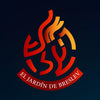Current information RSS
Shabat Bereshit "The beginning"
The first Shabbat after the festival of Sukkot is called "Shabbat Bereshit" because on this Shabbat we already begin to read the Torah from the beginning "Parasha Bereshit" in the book of Bereshit (Genesis).In some communities, especially those of Ashkenazi origin, it is customary that after the mincha (midday) prayer of Shabbat, one begins to recite Psalm 104 "Barchi Nefshi" (Bless my soul...), Shir laamalot (Song of Ascents) Psalms 120-134) these are customarily said throughout the winter until "Shabbat Gadol" the Shabbat before Pesach.The connection between "Barchi Nafshi" and "Shabbat Bereshit" is that the Bereshit section recounts the creation of...
Hoshana Raba, the day the trial is sealed
"Hoshana Rabbah" This is the last day on which we will fulfill the precepts of the four species and of dwelling in the Sukkah. This day is called Hoshana Rabbah, literally "The Great Hoshana," because more Hoshana prayers are recited on it than on other days. When the Beit Hamikdash (Great Temple) was still standing, large willow branches were carried and placed on the altar during Sukkot. The shofar was blown, and the Kohanim would walk around the altar and recite the prayer "Hosha na" – "Please save us."Then people would come in and wave the aravot (willow leaves). On...
"Yom Hakipurim"
We have arrived at Yom Kippur "The Day of Atonement" But what does "Yom Kippur" mean? The word "Yom" in Hebrew is day, and "Kippur" is derived from the word Kapara "expiation", kapara comes from "Kaporet or Kofer" which means "to cover" We can then understand that it would be an atonement for our sins or "a covering for our sins"Everyone anticipates this fearful day by preparing themselves, for on this day our fate will be decided and our verdict sealed, but what the uninitiated person fails to grasp is the true dimension of Yom Kippur: "An extraordinary spiritual force...
"He beats bad instinct" Parasha nitzavim
In this Parasha we learn how the Yetzer Hara (the evil inclination) subtly tries to make us fall. But there is a weapon that the Blessed Creator has given us to overcome this "old and foolish King" (The evil inclination)..."And if your heart turns away and you do not listen, you will go astray and bow down to other gods and serve them" (Deuteronomy 30:17)Our Great Sages explain that one sin leads to another sin (Pirkei Avot 4, 2) And if your heart turns away, and you do not listen to the words of the Torah, you are giving the...
Rosh Hashana, the head of the year
The holiday of Rosh Hashanah, "The New Year," takes place at the beginning of the Hebrew month of Tishrei. And it is known to us by this name only in the Mishnah, becoming a term that has been used for quite some time. In the Torah, this holiday is called "Yom Teruah" (Day of the Blowing of the Shofar). And in the liturgy, Rosh Hashanah is also known by two additional names: "Yom Hazikaron" (Day of Remembrance) and "Yom Hadin" (Day of Judgment). Of these five names, the term "Rosh Hashanah" became the most popular. But each of the other...





